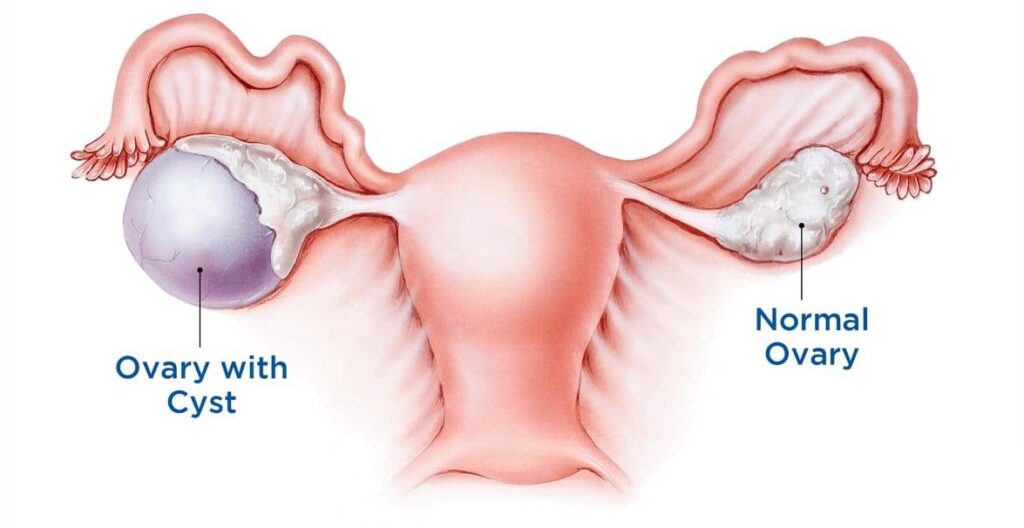Did you know that Ovary Removal Before Menopause Linked to Cognitive Impairment? This topic has been gaining attention in the medical community, and for good reason. Understanding the link between ovary removal and cognitive function is crucial for women making decisions about their health. Let’s dive into the details and explore this connection further.
What is Ovary Removal?
Ovary removal, medically known as oophorectomy, is a surgical procedure where one or both ovaries are removed. This can be done for various reasons, including cancer prevention, treatment of ovarian cysts, or other medical conditions. There are two main types of ovary removal: unilateral oophorectomy (removal of one ovary) and bilateral oophorectomy (removal of both ovaries).
Understanding Menopause
Menopause is a natural process that marks the end of a woman’s reproductive years, typically occurring around the age of 50. It is characterized by the cessation of menstrual periods and a decline in the production of hormones such as estrogen and progesterone. Natural menopause happens gradually, allowing the body to adjust to hormonal changes. However, surgical menopause, which occurs after ovary removal, can cause a sudden drop in hormone levels.
The Connection Between Ovaries and Cognitive Function
Ovaries play a significant role in producing hormones that are crucial for various bodily functions, including brain health. Estrogen, in particular, has been shown to protect against cognitive decline by promoting neuronal growth and plasticity. When ovaries are removed before menopause, the sudden loss of estrogen can have a profound impact on cognitive function.

Cognitive Impairment: An Overview
Cognitive impairment refers to a decline in mental abilities such as memory, attention, and problem-solving skills. It can range from mild cognitive impairment (MCI) to more severe forms like dementia. Symptoms may include forgetfulness, difficulty concentrating, and challenges in performing daily tasks. Understanding the different types and symptoms of cognitive impairment is essential for early detection and management.
Research on Ovary Removal and Cognitive Impairment
Several studies have investigated the link between ovary removal and cognitive impairment. For instance, research has shown that women who undergo oophorectomy before menopause are at a higher risk of developing cognitive problems later in life. One key study found that these women had a nearly twofold increased risk of dementia compared to those who did not have their ovaries removed.
Hormonal Changes After Ovary Removal
The removal of ovaries leads to an immediate and significant drop in estrogen levels, which can affect brain function. Estrogen plays a vital role in maintaining cognitive health by supporting synaptic plasticity and protecting neurons from damage. The abrupt loss of estrogen due to ovary removal can disrupt these protective mechanisms, leading to cognitive decline.
Risk Factors for Cognitive Impairment
Several factors can influence the risk of cognitive impairment after ovary removal. Age is a critical factor, as younger women who undergo the procedure may be more vulnerable to its effects. Genetic predisposition, such as a family history of dementia, can also play a role. Additionally, lifestyle factors like diet, exercise, and smoking can impact cognitive health.

Protective Measures and Treatments
To mitigate the risks of cognitive impairment, hormone replacement therapy (HRT) is often recommended. HRT can help restore hormone levels and protect against cognitive decline. Additionally, adopting a healthy lifestyle, including regular exercise, a balanced diet, and mental stimulation, can support brain health and reduce the risk of cognitive problems.
Personal Stories and Testimonials
Hearing from women who have experienced ovary removal can provide valuable insights. Many women report challenges in their daily lives, from memory lapses to difficulties in maintaining focus. These personal stories highlight the importance of awareness and support for those facing similar situations.
Medical Community’s Perspective
Healthcare professionals emphasize the importance of informed decision-making when considering ovary removal. They recommend discussing the potential risks and benefits with a healthcare provider, as well as exploring alternative treatments when possible. Guidelines suggest that ovary removal should be carefully evaluated, especially for women at risk of cognitive impairment.
Psychological Impact of Ovary Removal
The emotional and psychological effects of ovary removal can be significant. Women may experience feelings of anxiety, depression, and loss. Coping strategies, such as therapy, support groups, and mindfulness practices, can help manage these challenges and promote mental well-being.
Preventative Measures for At-Risk Women
For women at higher risk of cognitive impairment, regular medical check-ups and early detection are crucial. Screening for cognitive decline and monitoring hormone levels can aid in timely intervention. Preventative measures, such as lifestyle modifications and appropriate medical treatments, can also play a vital role in maintaining cognitive health.
Future Research Directions
While current research has provided valuable insights, there are still gaps in our understanding of the link between ovary removal and cognitive impairment. Future studies should focus on identifying the underlying mechanisms, exploring the role of different hormones, and developing targeted interventions to prevent cognitive decline in at-risk women.
Conclusion: Ovary Removal Before Menopause Linked to Cognitive Impairment
The removal of ovaries before menopause is linked to an increased risk of cognitive impairment. Understanding this connection is essential for women making informed health decisions. By exploring the role of hormones, examining research findings, and considering protective measures, women can better navigate the potential cognitive challenges associated with ovary removal.
